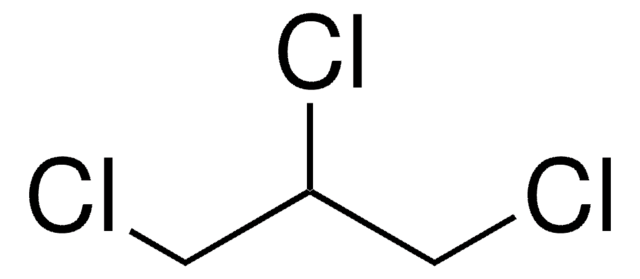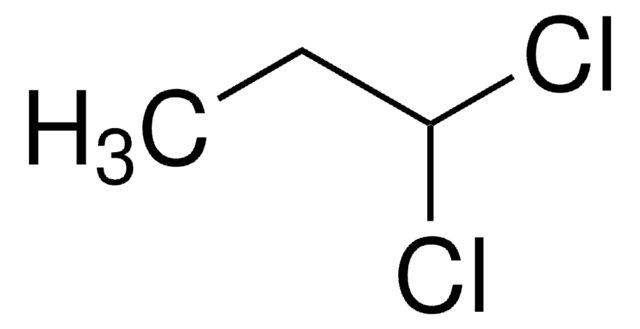Wichtige Dokumente
47793
trans-1,3-Dichlorpropen
analytical standard
About This Item
Empfohlene Produkte
Qualität
analytical standard
Qualitätsniveau
Analysenzertifikat (CofA)
current certificate can be downloaded
Verpackung
ampule of 100 mg
Methode(n)
HPLC: suitable
gas chromatography (GC): suitable
Anwendung(en)
environmental
Format
neat
Lagertemp.
-10 to -25°C
SMILES String
[H]\C(Cl)=C(\[H])CCl
InChI
1S/C3H4Cl2/c4-2-1-3-5/h1-2H,3H2/b2-1+
InChIKey
UOORRWUZONOOLO-OWOJBTEDSA-N
Suchen Sie nach ähnlichen Produkten? Aufrufen Leitfaden zum Produktvergleich
Anwendung
Signalwort
Danger
Gefahreneinstufungen
Acute Tox. 3 Dermal - Acute Tox. 3 Oral - Acute Tox. 4 Inhalation - Aquatic Acute 1 - Aquatic Chronic 1 - Asp. Tox. 1 - Carc. 2 - Eye Irrit. 2 - Flam. Liq. 3 - Skin Irrit. 2 - Skin Sens. 1 - STOT SE 3
Zielorgane
Respiratory system
Lagerklassenschlüssel
3 - Flammable liquids
WGK
WGK 3
Flammpunkt (°F)
80.6 °F - closed cup
Flammpunkt (°C)
27 °C - closed cup
Persönliche Schutzausrüstung
Eyeshields, Faceshields, Gloves, type ABEK (EN14387) respirator filter
Hier finden Sie alle aktuellen Versionen:
Besitzen Sie dieses Produkt bereits?
In der Dokumentenbibliothek finden Sie die Dokumentation zu den Produkten, die Sie kürzlich erworben haben.
Protokolle
US EPA Method TO-17: GC Analysis of Volatiles on VOCOL® after Collection/Desorption using Air Toxics Tube
US EPA Method 8260: GC Analysis of Volatiles on SPB®-624 after Purge & Trap using "K" Trap, Fast GC Analysis
Unser Team von Wissenschaftlern verfügt über Erfahrung in allen Forschungsbereichen einschließlich Life Science, Materialwissenschaften, chemischer Synthese, Chromatographie, Analytik und vielen mehr..
Setzen Sie sich mit dem technischen Dienst in Verbindung.












